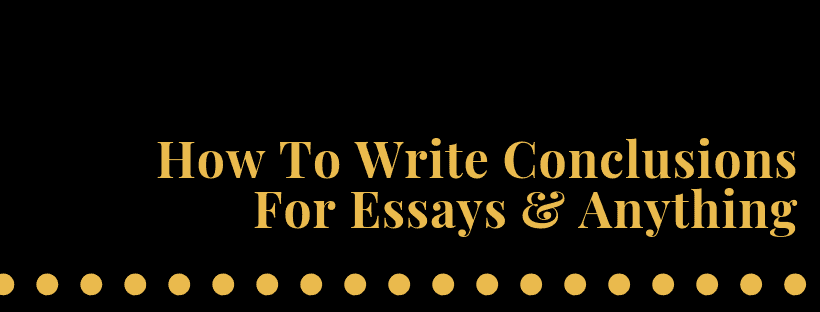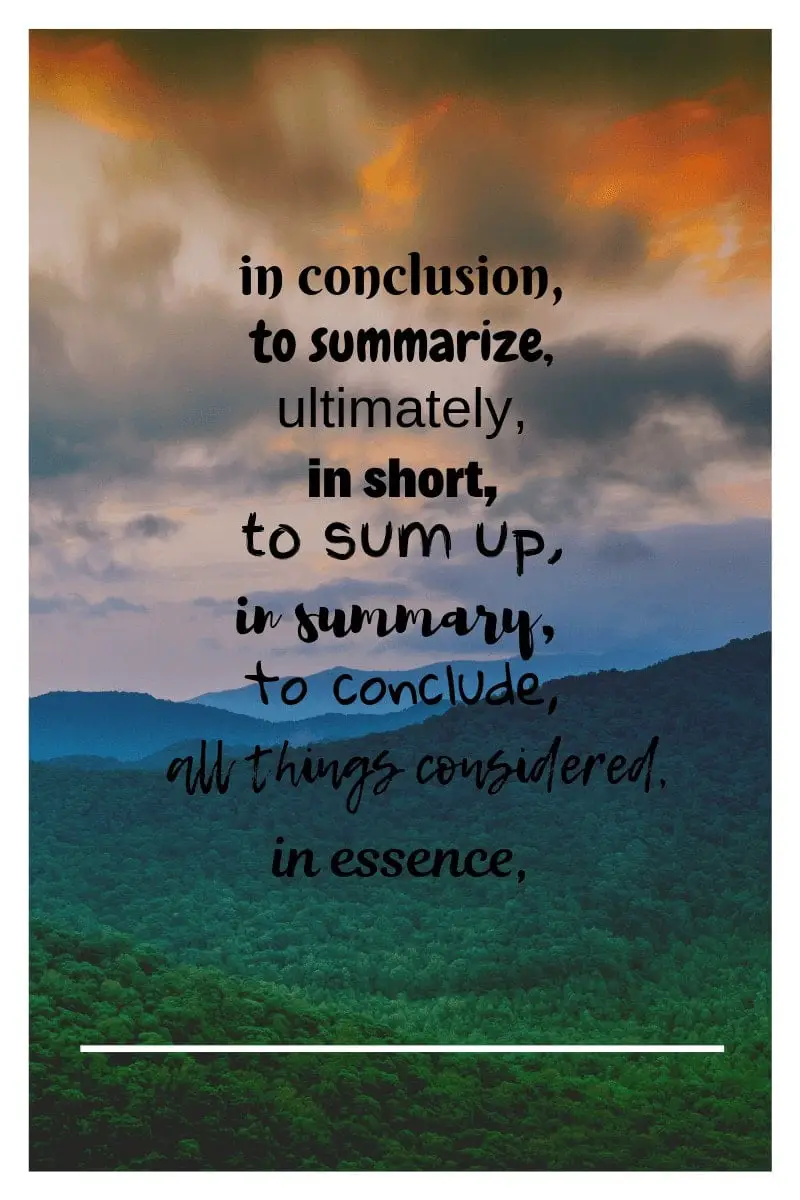Ending things are never easy, and when the thing that you have to end is an essay – it gets a notch tougher. Writing a Conclusion to an essay or a piece of writing is considered a tough task by many. This is because a conclusion must have an end note, a punch line, or a simple meaningful sentence that gives justice to your writing. A good conclusion always makes the reader happy and the writer even more.

What Is A Conclusion
A conclusion in literal meaning is an ending or finishing of anything. It could be a book, a business letter, a war, an apology letter, or an essay. It provides a thoughtful ending to the event, and summarise what had happened. You can add a little more in it, like what your thoughts were, viewers’ or readers’ take on the event or even an ending note to make the event more memorable.
Many students ask their teachers when they have to write a paragraph or a summary of a book they are reading, that what is a conclusion paragraph. The answer is really simple, just end the writing and don’t leave any loose threads. Good writing always has a good concluding paragraph. If it does not, then you might not say that you are content after reading it.
More like this:
Writing Diary Entries and Diary Entry Format
Let’s see why we must conclude our essays or paragraphs:
The importance of conclusion is not hidden from most of the students. As I have already mentioned, it gives a satisfactory ending to the paragraph. It gives the reader an understanding of the whole text and wraps up everything together.
The ending must convey a sense of completeness and closure to the writing. It may contain a larger meaning to the text, its implications. And you must choose the correct way to close off the discussion.

How To Write Conclusions For Essays
The basic steps to concluding a letter include:
1. Choose transition words to smoothly conclude the essay
The first thing to start concluding your essay is to use the correct transition word. “To conclude”, “In conclusion”, “In summary” are some of the most commonly used transition words in essays. You can play safe and use such words, or you can cook up something more interesting. It signals the readers that you are going to start to wrap up the essay. And this is how to start a conclusion.
2. Restate all the main points that you have discussed until now.
It is like writing a summary, but more concisely. Depending on the length of your essay, this could be done in a single sentence or a complete paragraph. But, try to be as concise and clear as you can. The main points are to be summarized in simple phrases, restating all the details to the point.
3. Call to action
Like most of the speeches do, all the custom essays and pieces of writings must involve a call to action as your last sentence. This is to get your readers involved and feel inspired.
Conclusion Paragraph Examples
Here are a few conclusion examples from famous writings that might help you understand how conclusions work.
Writing A Conclusion Example




Tips For Writing A Conclusion
It might be mentioned that you just need to summarize your essay in order to write a good conclusion. It is correct, but do not just conclude the essay as it. A brief summary may be useful, but a shorter version of what you have already written might not always catch the eye of the reader.
So, avoid anything that is common and obvious. Avoid repeating the use of phrase words, do not irritate your audience by ending the writing in a haste. You must also avoid apologizing to anyone, or writing something like “this is just my take on the topic”.
So, that was all for this topic. How about writing a comment describing your experience with writing a conclusion!!
